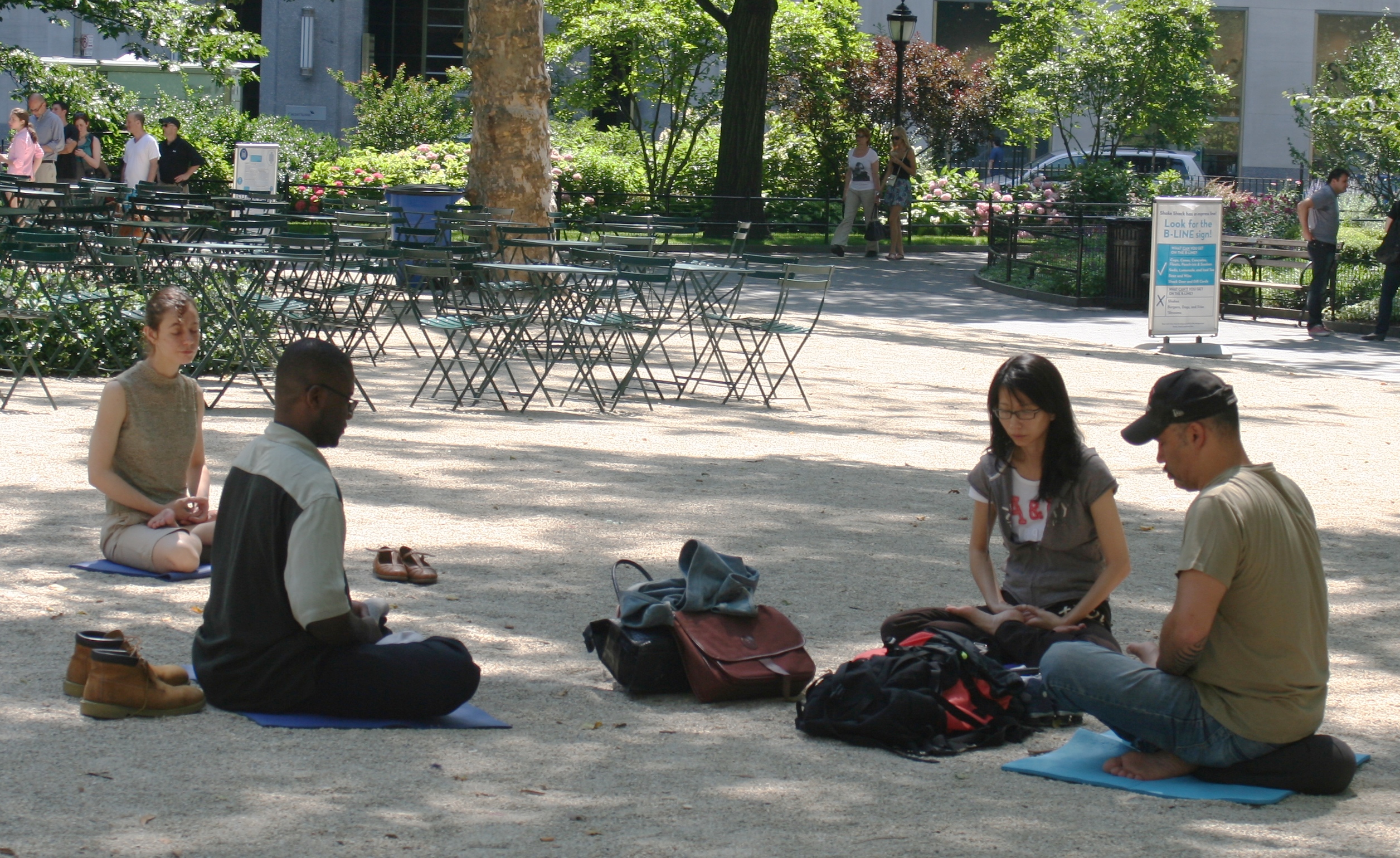Most people think they are bad at meditating.
Can’t sit still and turn your thoughts off for at least 20 minutes?
You’re not bad at meditating, you’re just a human with a brain.
Actually, most of us already meditate—we just do it accidentally. You know that feeling when you are taking a shower, and the warm water pours over your body, and you forget what you were rushing to get ready for? Time disappears for a moment, and when you step out of the shower you snap out of it. Maybe you’ve driven down a long empty road with no traffic, and suddenly you’ve hit the next town. This feeling of time lapsing and your thoughts tumbling freely like dryer sheets happen all the time: on walks or runs, in the moments before you fall asleep, when you are staring out a bus window or daydreaming in a waiting room.
We all need moments where the mind can wander, and if you don’t sit still in mindful meditation, the brain will figure out a way to zone out. Meditation doesn’t have a standard definition because it’s something different depending on which tradition you are working within. Most meditations are essential techniques for releasing the hold of the moment-to-moment crush of daily life so we can slip into a quieter place where we can connect to our bodies, our intuitions, or perhaps some form of spirituality.
One way of thinking about this (greatly simplified) is that most of the time, we are very active in the left brain hemisphere, which governs language, analysis, rational thought, and planning for the future. The right brain doesn’t have language and governs our experiences of sensation, image, intuition, and energy. We live in a world that privileges our left brain, and we feed our information addictions constantly through our smartphones. We need to balance that with moments where we can slip off to space where time stops its incessant tick, and we can access our subconscious, emotional, and creative selves.
When accidental meditations happen, the left brain is occupied with a repetitive task that’s familiar enough that it doesn’t require a full engagement. Showering, walking, or figuring out where to put your foot in a yoga class can give your analytical left brain something to do, which frees up the right brain to have a physical, present-moment experience. Even forms of classical meditation, like repeating a mantra over and over in your mind, are essential techniques for occupying your left brain so that you can slip into a different state.
This different state often means your brain is in an alpha brainwave rhythm, a relaxed, open-minded experience where creativity is at its most potent. When we are stressed and over-focused, we can’t see any new ways of thinking. Alpha state blurs our sense of boundaries and rationality, so new ideas and connections can appear. That’s why we often get our best ideas in the shower.
You know, then, that you are already a great meditator, whether you mean to be or not. Creating more opportunities to enter into this creative state is as easy as incorporating more light, repetitive, physical activity, like walking, into your day. Next time you are sitting on a bus, resist the urge to check your phone: just stare out the window. Knitting, cooking, and cleaning can also be very effective accidental meditations. The more mindful these meditations become, the less accidental they are. Soon enough, you may notice yourself getting stuck worrying about the future or trying to think out a problem, so you stop and try one of these activities instead. You may even decide to sit still for 20 minutes, and find out that meditation on purpose isn’t so bad, after all.
